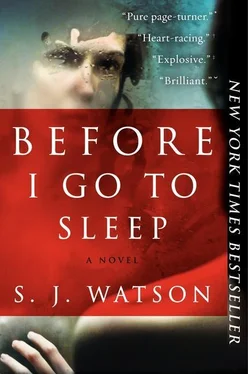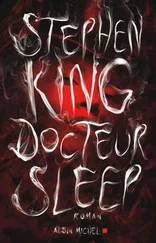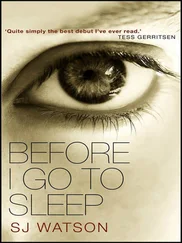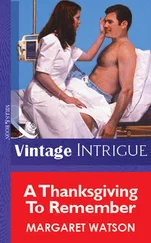I thought of my husband, tried to imagine him writing letters, campaigning, threatening. It did not seem possible. The man I had met that morning seemed humble, deferential. Not weak, exactly, but accepting. He did not seem like the kind of person to make waves.
I am not the only one, I thought, whose personality has changed because of my injury.
“The home was fairly small,” said Dr. Nash. “A few rooms in a rehab center. There weren’t many other residents. Lots of people to help look after you. You had a little more independence there. You were safe. You made improvements.”
“But I wasn’t with Ben?”
“No. He lived at home. He needed to carry on working, and he couldn’t do that and look after you. He decided—”
A memory flashed through me, tearing me suddenly back into the past. Everything was slightly out of focus and had a haze around it, and the images were so bright I almost wanted to look away. I saw myself, walking through these same corridors, being led back toward a room that I dimly understood was mine. I am wearing slippers, a blue gown with ties up the back. The woman with me is black, wearing a uniform. “Here you go, hon,” she says to me. “Look who’s here to see you!” She lets go of my hand and guides me toward the bed.
A group of strangers are sitting around it, watching me. I see a man with dark hair and a woman wearing a beret, but I cannot make out their faces. I am in the wrong room, I want to say. There’s been a mistake. But I say nothing.
A child—four or five years old—stands up. He had been sitting on the edge of the bed. He comes toward me, running, and he says Mummy and I see that he is talking to me, and only then do I realize who he is. Adam. I crouch down and he runs into my arms, and I hold him and kiss the top of his head, and then I stand. “Who are you?” I say to the group around the bed. “What are you doing here?”
The man looks suddenly sad; the woman with the beret stands and says, “Chris. Chrissy. It’s me. You know who I am, don’t you?” and then comes toward me and I see that she is crying.
“No,” I say. “No! Get out! Get out!” and I turn to leave the room and there is another woman there—standing behind me—and I don’t know who she is, or how she got there, and I begin to cry. I begin to sink to the floor, but the child is there, holding on to my knees, and I don’t know who he is, but he keeps calling me Mummy , saying it over and over again. Mummy. Mummy. Mummy , and I don’t know why, or who he is, or why he is holding me…
A hand touched my arm. I flinched as if stung. A voice. “Christine? Are you okay? Dr. Wilson is here.”
I opened my eyes, looked around. A woman wearing a white coat stood in front of us. “Dr. Nash,” she said. She shook his hand, and then turned to me. “Christine?”
“Yes,” I said.
“Pleased to meet you,” she said. “I’m Hilary Wilson.” I took her hand. She was a little older than me; her hair was beginning to turn gray, and a pair of half-moon glasses dangled around her neck on a gold chain. “How d’you do?” she said, and from nowhere I felt certain I had met her before. She nodded down the corridor. “Shall we?”
Her office was large, lined with books, piled with boxes of spilling papers. She sat behind a desk and indicated two chairs opposite it, into which Dr. Nash and I sank. I watched her take a file from the pile on her desk and open it. “Now, my dear,” she said. “Let’s have a look.”
Her image froze. I knew her. I had seen her picture as I lay in the scanner, and, though I hadn’t recognized it at the time, I did now. I had been here before. Many times. Sitting where I am now, in this chair or one like it, watching her making notes in a file as she peered through the glasses held delicately to her eyes.
“I’ve met you before…” I said. “I remember…” Dr. Nash looked over at me, then back at Dr. Wilson.
“Yes,” she said. “Yes you have. Though not that often.” She explained that she’d only just started working here when I moved out and that at first I wasn’t even on her caseload. “It’s certainly most encouraging that you remember me, though,” she said. “It’s been a long time since you were resident here.” Dr. Nash leaned forward and said it might help me to see the room in which I’d lived. She nodded and squinted at the file, then, after a minute, said she didn’t know which it was. “It’s possible that you moved around a fair old bit in any case,” she said. “Many of the patients do. Could we ask your husband? According to the file, he and your son visited you almost every day.”
I had read about Adam this morning and felt a flash of happiness at the mention of his name, and relief that I’d seen a little of him growing up, but shook my head. “No,” I said. “I’d rather not call Ben.”
Dr. Wilson did not argue. “A friend of yours named Claire seemed to be something of a regular, too. How about her?”
I shook my head. “We’re not in touch.”
“Ah,” she said. “What a pity. But never mind. I can tell you a little bit of what life was like here back then.” She glanced at her notes, then clasped her hands together. “Your treatment was mostly handled by a consultant psychiatrist. You underwent sessions of hypnosis, but I’m afraid any success was limited and unsustained.” She read further. “You didn’t receive a great deal of medication. A sedative, occasionally, though that was more to help you sleep—it can get quite noisy in here, as I’m sure you can understand,” she said.
I recalled the howling I’d imagined earlier, wondering if that might have once been me. “What was I like?” I said. “Was I happy?”
She smiled. “Generally, yes. You were well liked. You seemed to make friends with one of the nurses in particular.”
“What was her name?”
She scanned her notes. “I’m afraid it doesn’t say. You played a lot of solitaire.”
“Solitaire?”
“A card game. Perhaps Dr. Nash can explain later?” She looked up. “According to the notes, you were occasionally violent,” she said. “Don’t be alarmed. It’s not unusual in cases like this. People who have suffered severe head trauma will often exhibit violent tendencies, particularly when there has been damage to the part of the brain that allows self-restraint. Plus, patients with amnesia such as yours often have a tendency to do something we call confabulation. Things around them do not seem to make sense, and so they feel compelled to invent details. About themselves and other people around them, or about their history, what has happened to them. It’s thought to be due to the desire to fill gaps in the memory. Understandable, in a way. But it can often lead to violent behavior when the amnesiac’s fantasy is contradicted. Life must have been very disorienting for you. Particularly when you had visitors.”
Visitors. Suddenly I was afraid I might have hit my son.
“What did I do?”
“You occasionally lashed out at some of the staff,” she said.
“But not at Adam? My son?”
“Not according to these notes, no.” I sighed, not entirely relieved. “We have some pages from a sort of diary that you were keeping,” she said. “Might it be helpful for you to take a look at them? You might understand your confusion better.”
This felt dangerous. I glanced at Dr. Nash, and he nodded. She pushed a sheet of blue paper over to me and I took it, at first frightened to even look at it.
When I did, I saw that it was covered in an unruly scrawl. At the top, the letters were well formed, and kept neatly within the printed lines that ran across the page, but toward the bottom, they were large and messy, inches tall, just a few words across. Though dreading what I might see, I began to read.
Читать дальше












